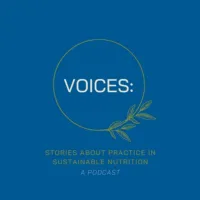Episode Description
Research has shown the production of animal-based foods generates higher green-house gas emissions and requires greater water and land use than the production of plant-based foods. However, there are many points to consider when evaluating the environmental impact of meat. The agriculture sector has made substantial improvements to lower green-house gas emissions. Many regions graze animals on land not suited for crop production and some techniques related to raising animals may help maintain biodiversity and healthy ecosystems.
While pasture-raised animals may provide a higher quality of life for animals and lower environmental impacts related to more intensive farming strategies such a strategy may not be practical to meet all of the current or projected consumption demands and could require more farmland than what is available in some regions. And in Tara Garnett’s words “while grazing livestock have their place in a sustainable food system, that place is limited”
I am pleased today to have joining us two dietitians who share their knowledge and experience on the role of meat in the country where they currently live and work. First is Sonja Schonberg, who has a Masters in Food, Nutrition and Health and currently is a teacher and researcher at Bern University in Switzerland. And we also have Stacia Nordin, a dietitian who lives and works in Malawi.
https://www.wwfbaltic.org/our-vision-for-the-baltic-sea/reduce-eutrophication/meat-guide/Climate Impacts of Cultured Meat and Beef Cattle
Meat alternatives: life cycle assessment of most known meat substitutes
WWF Meat guides from Sweden, Finland and Germany Meat Guide - Baltic WWF
Plant-based meat substitutes in the flexitarian age: an audit of products on supermarket shelves
https://www.tabledebates.org/publication/grazed-and-confused
